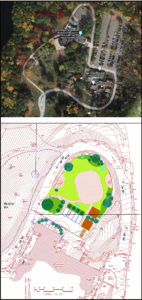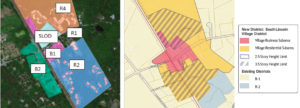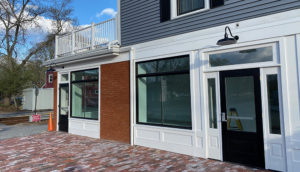
The house at 22 Bypass Rd. (2016 photo) where McLean Hospital had hoped to house boys and men aged 15-21. The adjacent house at 16 Bypass Rd. can be seen at far left.
After years of litigation culminating in a go-ahead from the Supreme Judicial Court for a McLean Hospital facility in Lincoln, the hospital found another location for the services and has put the two Bypass Road properties on the market.
McLean, a psychiatric hospital in Belmont with several satellite locations, purchased two adjacent properties at 16 and 2 Bypass Road in 2016. The facility was intended as a locked residential site for teenage boys and young men being treated for borderline personality disorder using dialectical behavioral therapy to teach mindfulness, interpersonal effectiveness, emotion regulation, and distress tolerance.
McLean initially got a building permit from the town under the Dover Amendment, which exempts educational and religious facilities from many local zoning restrictions. Neighbors argued that the intended use was medical and not educational. After several appeals, the Supreme Judicial Court ruled in 2019 that the McLean facility did in fact qualify as an educational facility.
But McLean has moved on since then. “For the program we planned to put in there, we found a much better site closer to the hospital, so that turned out to be a good move for us,” said Dr. Philip Levendusky, senior vice president for business development and communications, and director of McLean’s Psychology Department. The Arlington location, which is now in operation, “is a very attractive site and much larger than what we were looking at in Lincoln.”
The new Arlington location is a “free-standing piece of real estate” recently purchased by McLean and is not part of the hospital’s existing 3East campus in Arlington, Levendusky said.
In June 2016, McLean bought 16 Bypass Rd. for $1,024,500 and the larger home at 22 Bypass Rd. for $1,700,000, according to town land records. The hospital subsequently did an $83,000 kitchen renovation at 16 Bypass Rd. but never pulled any building permits for the other parcel. The properties are now listed for sale at $900,000 and $2.26 million, respectively.







